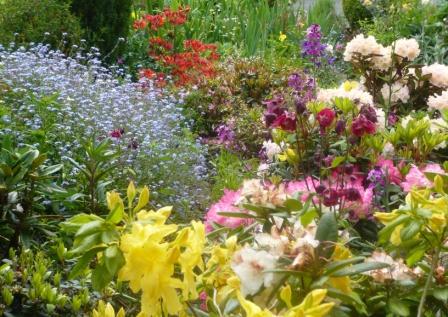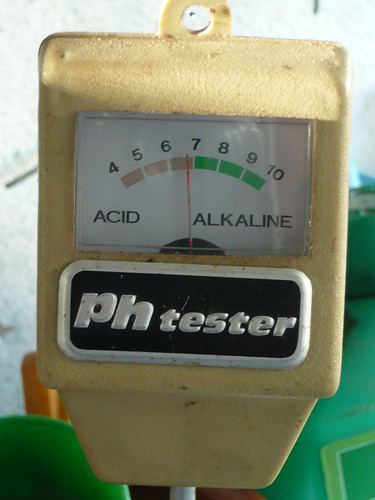
What is Acid Soil for Gardeners
Many plants grow best in what is termed ‘acid soil’ but what acid and how strong. How can we gardeners find answers to these questions so we give our plants the most appropriate soil conditions.
Measuring Soil Acidity
- Acidity in soil or solutions is measured in terms of the pH level. pH is the abbreviation for potential hydrogen the measure of its hydrogen-ion concentration.
- pH for soil varies on a numeric scale where, between 1 and 7 is very acidic to neutral and between 7 and 14 is neutral to alkaline basic or limey
- UK soils are normally the pH range of between pH 4.0 and 8.5. (4.0 is quite acidic and 8.5 very basic or alkaline).
- I aim for soil between 6.0 and 7.5 an this suits most of my plants

This scale shows pH in relation to common household liquids. 7.0 is pure distilled water.
What is the Impact of pH on Plants
- pH levels influence which plants will grow.
- pH levels determine if a plant can take up and use normal nutrients.
- An acid-loving plant in alkaline soil is likely to suffer and die.
- Below 5.5pH the availability of manganese and aluminum could become toxic to plants.
- In alkaline soils you may experience bacterial diseases eg in potatoes.
What Affects Soil Acidity
- Soil is not homogenous and you need to test soil from several areas. There are kits and measuring devices to help.
- The original underlying parent material will determine your soil pH.
- Rainfall and leaching can take soluble chemicals from the soil making it more acidic
- The application of fertilisers and organic matter can influence the pH level.
- High and regular crop harvesting can change the soil.
Changing Soils pH Acidity
- To make soil less acidic for vegetables, saxifrages and annuals for example you can add lime or pulverised chalk.
- Bone meal is a good source of calcium and with wood ash it can help raise your soil’s pH over time. It is used for soils that are only slightly acidic.
- Ericaceous plants such as most rhododendrons, heathers, camellias, acers and blueberries need acid soil.
- Peat is naturally acidic and a mulch of pine needles, peat moss, or shredded bark that will organically reduce pH levels. Otherwise ericaceous compounds are sold
- For container plants water several times with a solution of 2 tablespoons vinegar to a gallon of water
Footnote
The term Ericaceous is used for acidic soil or acid loving plants. Another way of looking at it is that Ericaceous plants are known as lime-hating or calcifuge plants. The term comes from Ericas which are generally peat loving moorland plants.


